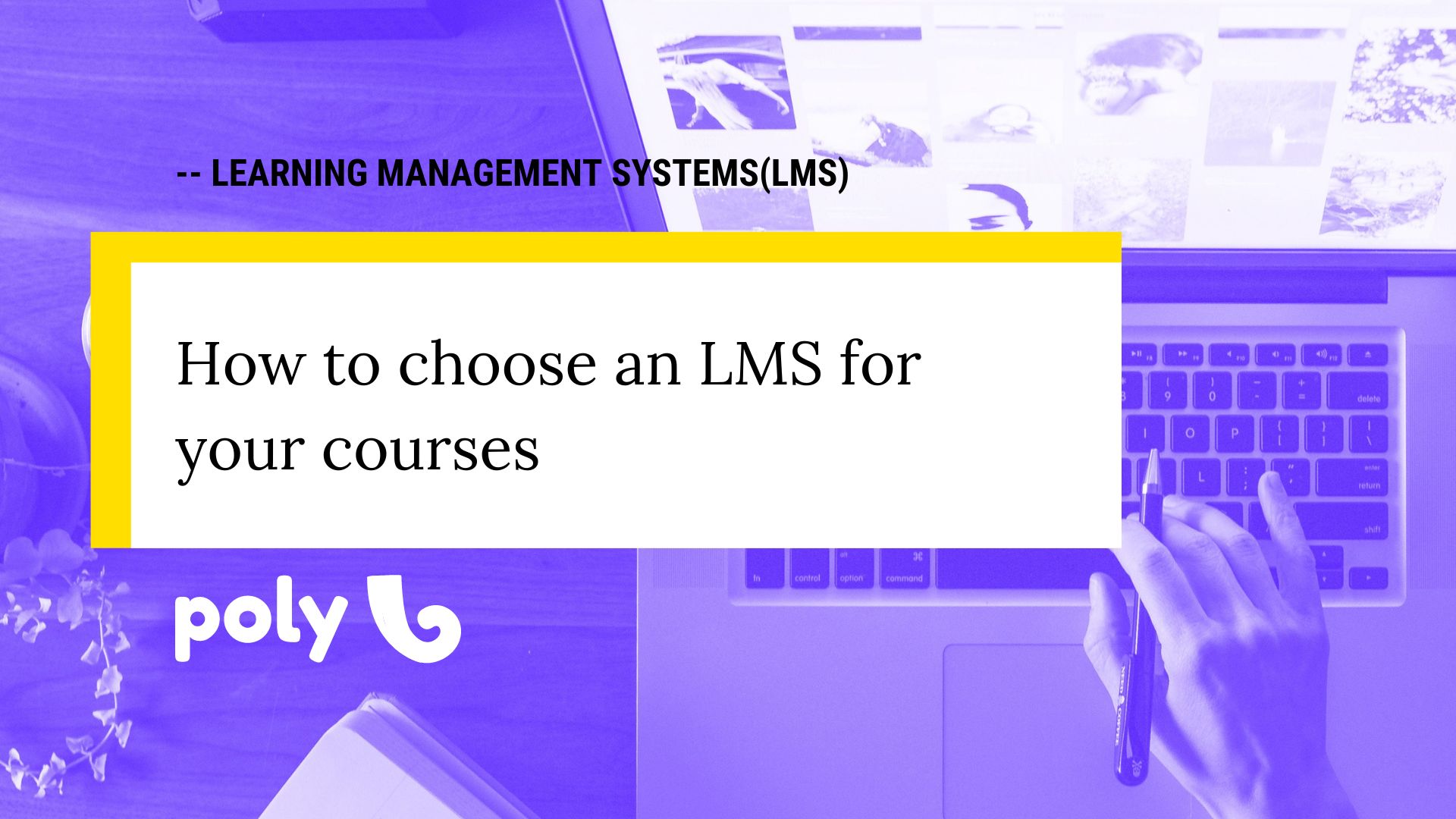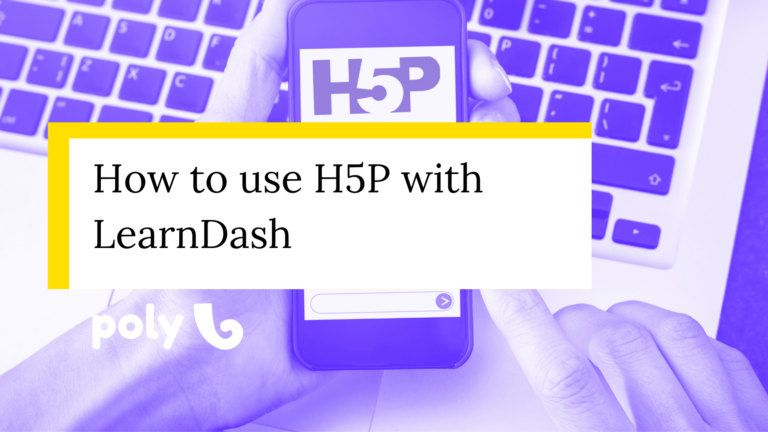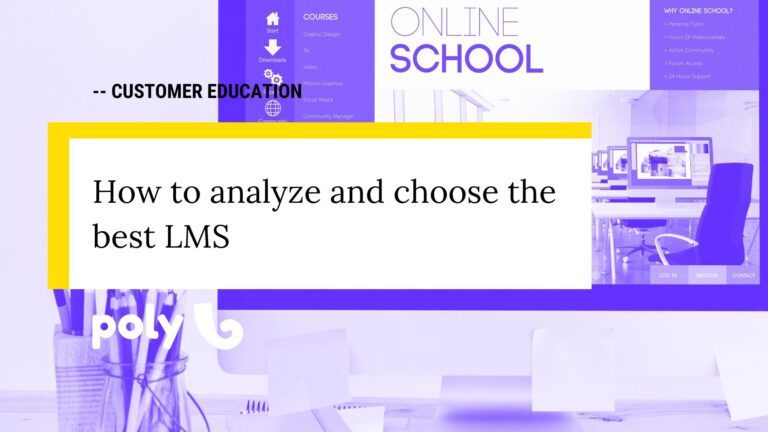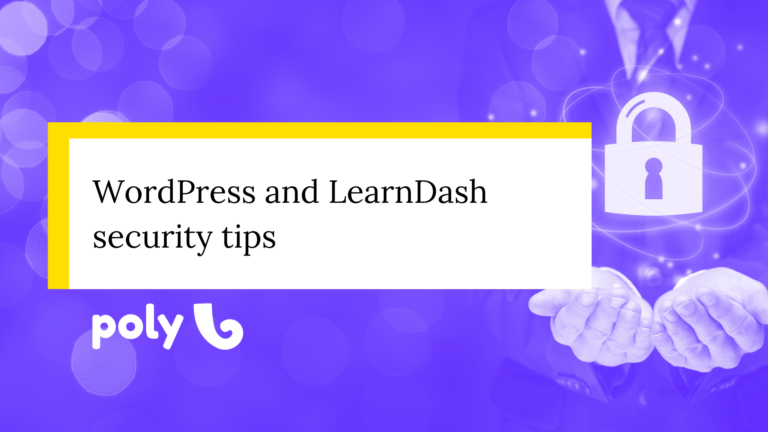How to choose an LMS platform
One of the first questions for those creating their online courses is choosing the LMS platform. There is an increasing number of discussions about education and online courses. One of the initial doubts is: what platform to use?
For those who want to sell, they consider marketplaces or sales platforms. Most people who want to educate their customer base think about proprietary platforms.
You will need a Learning Management System (LMS), the most well-known term to deliver an online course.
In this article, I will discuss the logic we use to choose, how to choose the LMS platform, and some options available in the market.
What is an LMS?
An LMS is a software that companies and individuals can use to develop, deliver, and track their students (and courses).
Until recently, we thought of training and courses as a classroom with a lecturing teacher. In the best-case scenario, we have corporate training, where companies hire (or even develop) courses to train their employees.
Our clients are product and service companies that plan to use courses and educational content to educate their leads and customers. A digital loyalty card startup needs its customers to have good customer service. They created a customer service course with us.
Therefore, the first thing to consider when learning how to choose the LMS platform and which one to use is your objective. We will talk more about this later.
You can think of an LMS to deliver complete courses, a live streaming platform, manage your resource library, or facilitate messaging between students, teachers, and instructors. In it, you can include ebooks, audios, videos, tests, images, etc. Of course, this will depend on the features the chosen LMS offers.
What is included in a system, and how to choose an LMS platform?
An LMS typically has two parts: the administration side and the student interface.
On the administration side, you will find tools to manage your courses, content, and students. This includes content upload tools, organization features, lesson and quiz creation, topic divisions, analysis and reporting, notifications, student communication, and more.
Students will have a media player, task controls, a calendar, interaction features, quizzes, forums, and messaging capabilities.
Some LMS platforms have features such as gamification, a more user-friendly interface, mobile applications, and more. Marketplaces like Udemy do not provide access to user data, so you may need more contact with students or the ability to promote other products. However, you benefit from their promotional efforts.
On other platforms, you have full access to your students’ data.
Here is a comparison chart of various platforms to help you choose an LMS. Now, let’s discuss your objectives and how to choose the best system for you.
Common criteria for teaching online:
As a focus at Poly, we have observed some common themes among our clients: they want to earn extra income from online courses, position themselves as instructors, generate leads, or educate their customer base.
We need to consider specific functionalities of LMS platforms for each objective. Therefore, our answer to the question “How to choose an LMS platform” is “What is your objective?”
If you want to make money with online courses:
The first question to ask yourself is whether you have the time and financial resources to invest in your online courses or if you prefer to record the course once and have the platform handle the sales for you. Based on this, you will have two paths to consider.
If you need more time or financial resources to invest in an online course, your option is to look for marketplaces. Typically, these platforms charge a percentage of the revenue rather than a monthly fee. However, a few marketplaces also charge a monthly fee to instructors, but this is a minority case.
In this regard, you need to consider certain characteristics:
- Does the platform have a wide reach?
- What is the average audience and interests of your target audience?
- What is the course landscape on the platform?
- What is the pricing policy of the platform?
- What is the revenue percentage and how is it distributed?
- Is there room for self-promotion?
- What type of contact and access do you have with your students?
- What are the possibilities for course upload and organization?
- Is there a quality standard? If so, what are the minimum requirements?
- What benefits do they offer to students? Certificates, lifelong access, mobile apps, etc.?
- Can you remove videos from the platform at any time?
- How is the assessment and feedback tool?
- Do you gain any benefits from bulk sales? For example, for companies? Can you create packages?
If you are willing to invest time and financial resources in promoting your own platform, there are different considerations when choosing an LMS platform. Remember that you will now have more responsibility for marketing, so let’s focus on the tools the platform provides you directly.
- How are fees charged to instructors? Is it an annual fee, monthly fee, percentage of revenue, or per active student? Payment models can vary significantly, and here you should consider whether your course has a high final value or a low value and whether your intention is to have thousands of students to be profitable or if a small number of students already brings you a return.
- What payment methods are accepted?
- What marketing resources are available? Affiliate programs, advanced coupon management, offers, price anchoring, promotional videos, landing page creation, lead capture (non-paying subscribers), integration with Facebook Pixel?
- Are there promotion and sales performance reports? Which ones? We’re referring to integration with Analytics or even a proprietary report to get an idea of the number of visits, demographics, abandonment rate, etc.
- Does it allow the creation of dedicated pages or is it limited to the purchase page? Some LMS platforms allow you to create a website centered around selling courses. Others only allow the creation of a landing page with the course program and the buy button.
- What methods are available for managing students? What resources are included?
- What products can you sell? Can you sell ebooks, consulting, or only courses? Can you create packages? For example, Course 1 + Course 2 for a discount? Course + ebook?
- Is there a messaging system between students or between students and instructors?
- Is there a feedback and assessment feature?
- What is the level of customization? Do they add watermarks? Can you have your own domain? How much can you customize the landing page and the lesson system itself?
- What integrations are available with other platforms? Integrations here refer to RD Station, Zapier, Mailchimp, and many others.
- Is there access control for corporate sales groups? Is there any level of control in this regard?
A common question you can ask that applies to all these platforms is about the level of content protection. Is it easy to download the videos? Many platforms do not host videos, so you upload them to YouTube and provide the link on the platform. This makes it easier for the content to be shared.
If you want to position yourself as an educational influencer:
With this goal in mind, your main intention is to have as many people as possible take your course, whether they pay for it or not. Here, although it is relevant, we are much more focused on your presence as an instructor than on actual revenue.
Some additional questions may be:
- Do I gain any visibility by being on the platform? Can I reach new audiences through it?
- Do I gain credibility by being on this platform?
- Can I promote my website and social media to them?
- Is there an instructor/teacher page?
- Can I offer short free courses to promote my image?
- What level of access do I have to the students? Can I integrate with an email marketing platform or export contacts?
- Can I create self-promotional videos or content? Some platforms, especially marketplaces, allow for a self-promotional video at the end, while others have no rules.
- Are there certifications for students who complete the lessons?
- Is there a satisfaction survey?
If you aim to generate leads with online courses:
In this topic, we have some distinctions. It is similar to the educational influencer positioning mentioned above. Still, the focus here will be more on the audience since you are not seeking the widest possible reach but rather specific individuals.
Notice that the questions we will ask are highly related to your interaction with your audience:
- What is the platform’s audience? Is it an audience that interests me?
- Do they provide any promotions, or is it all up to me?
- What level of access do I have to student information?
- Can I export the information to other tools?
- Are there any analytics tools for me to check the demographics of visitors and paying customers?
- Can I interact with the students?
- Can I promote my own website or supplementary materials, such as ebooks, spreadsheets, and PDFs?
- Can I offer free content? Will it increase my visibility?
- Can I use drip marketing with my students? That is, can I send scheduled content?
- Does the platform offer gamification or any techniques to increase course completion and retention?
If you want to educate your customer base:
We have education, which is certainly not the last objective for anyone creating an online course. We have observed a shift in behaviour as they seek content production for ranking on Google and generating leads. However, we have seen an increase in companies interested in educating their customer base.
The reasons are obvious: if your customer can better use your product and your proposed tactics, the chances of success are higher. For example, an LMS company will have much higher customer retention if they know how to create good courses and achieve their goals.
Therefore, when searching for an LMS to educate your customer base, you should ask yourself:
- What formats does the platform allow?
- What interactive content options are available to increase engagement and knowledge retention?
- Do I have any control over student learning and progress?
- Does the platform offer any gamification features to encourage my students to study more?
- Can we deliver content in smaller chunks, such as through email marketing, to facilitate learning?
- Does the platform have an app or mobile version?
- Is there any support or forum for student interaction or interaction with tutors/customer support team?
Do you know what Customer Education is?
Choosing the ideal LMS platform for you:
In this article, we helped you understand more about choosing an LMS platform and what you should look for. Platforms are constantly changing, and new features are always being released. Each platform has its own focus – some are for employee training, others for revenue generation, and some try to be more general.
The key tip is not to choose a platform solely based on the number of features and its absolute price but rather on the resources they offer in line with your expectations. Since we noticed that many of our clients need help figuring out what to look for, we created this short guide to help you choose the best LMS for you.
Now, your next step will be to search for lists of LMS platforms and see which ones make the most sense for you, your goals, and your audience. Notice that we didn’t focus much on the student experience, but that will be crucial. Therefore, when choosing an LMS and you need clarification on 2 or 3 options, try navigating as if you were a student to confirm if their experience is compatible with the audience you expect as students.








